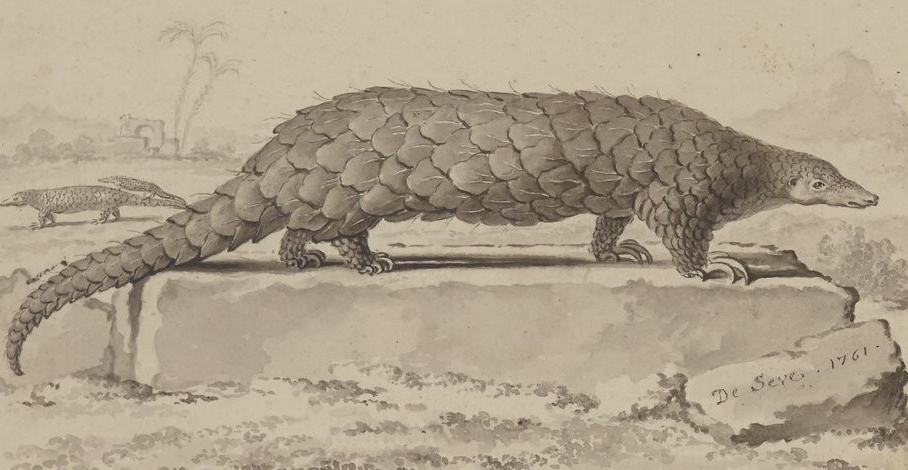Next session of the online reading group for Maffei’s Historiae Indicae will be Thursday, May 14, 11:00 a.m. EDT, 4:00 p.m. BST, 11:00 p.m. CST. Please join us!
Here is the Latin text. We are beginning at the section titled “The cruelty of Portuguese governor on Ternate”
The same Zoom info below should work again. Looking forward to it!
Meeting ID: 873 089 112
****************************************************************************
Next session of the online reading group for Maffei’s Historiae Indicae will be Thursday, May 7, 11:00 a.m. EDT, 4:00 p.m. BST, 11:00 p.m. CST. Please join us!
Here is the Latin text. We are beginning at the section titled “The empress Eleni of Ethiopia and her massive retinue”
The same Zoom info below should work again. Looking forward to it!
Meeting ID: 873 089 112
******************************************************************************
Next session of the online reading group for Maffei’s Historiae Indicae will be Thursday, April 30, 11:00 a.m. EDT, 4:00 p.m. BST, 11:00 p.m. CST. Please join us!
Here is the Latin text. We are beginning at the section titled “The miracle of the lobsters”
The same Zoom info below should work again. Looking forward to it!
Meeting ID: 873 089 112
******************************************************************************
Next session of the online reading group for Maffei’s Historiae Indicae will be Thursday, April 23, 11:00 a.m. EDT, 4:00 p.m. BST, 11:00 p.m. CST. Please join us!
Here is the Latin text. We are beginning at the section titled “The challenge of dealing with Brazilian cannibals”
The same Zoom info below should work again. Looking forward to it!
Meeting ID: 873 089 112
*******************************************************************************
Next session will be Thursday, April 16, 11:00 a.m. EDT, 4:00 p.m. BST, 11:00 p.m. CST.
Here is the Latin text. We are beginning at the section titled “The Customs of Chinese Women”
The same Zoom info below should work again. Looking forward to it!
Meeting ID: 873 089 112
**************************************************************************************
Next session will be Thursday, April 9, 11:00 a.m. EDT, 4:00 p.m. BST, 11:00 p.m. CST.
Here is the Latin text. We are beginning at the section titled “Brahmans and Gymnosophists in India”
The same Zoom info below should work again. Looking forward to it!
*******************************************
Update March 30, 2020: After an enjoyable first session last week full of fascinating Brazilian critters, the Maffeius reading group rides again this Thursday, April 2, at 12:00 p.m. EDT, 4:00 p.m. BST, 12:00 a.m. CST. Please join us if you can!
Meeting ID: 873 089 112
*********************************************
During this time of isolation I’ll be leading an online reading group for Maffei’s Historiae Indicae (full text on Google Books) starting Wednesday 3/25, 12:00-1:00 p.m. EDT, 4:00-5:00 p.m. GMT. If you would like to participate, just email me (francese@dickinson.edu) and I will send you the information for the Zoom call! I imagine we’ll meet one per week, maybe more if there is interest.

Jacques de Sève, “Le Pangolin,” illustration from Georges-Louis Leclerc, comte de Buffon, Histoire Naturelle, générale et particulière, avec la description du Cabinet du Roi (1749–1804). Source: Gallica http://gallica.bnf.fr/ark:/12148/btv1b105279332/f1.item
First published in Florence in 1588, Historiae Indicae tells the story of the Portuguese voyages of conquest and discovery in the fifteenth and sixteenth centuries around the coast of Africa, to the Malabar Coast of India, on to Malacca, China, and Japan. The primary interest of the work today lies in the wealth of information Maffei provides about a wide variety of peoples, products, and places across the globe. The full-scale ethnography of China in Book 6 is of particular interest, and the diverse subjects treated will appeal to students from many backgrounds, and anyone interested in the customs, products, and cultures of the world.
I have prepared a Google doc with some selections, as follows:
Notable Critters of Brazil (Book 2, pp. 35-36)
The many uses of the coconut in the Maldives (Book 7, p. 149)
Dining, tea, and tea sets in Japan (Book 12, p. 268)
Brahmans and Gymnosophists in India (Book 1, p. 27).
The customs of Chinese women (Book 6, p. 122)
Chinese writing, literature, and the examination system (Book 6, pp. 125-126)
The challenge of dealing with Brazilian cannibals (Book 15, p. 328).
A strange corpse that will not stay buried (Book 5, p. 112).
The beautiful solemnity of oath taking in Pegu (Bago, Myanmar) (Book 7, pp. 146–147)
The empress Eleni of Ethiopia and her massive retinue (Book 11, pp. 247–248).
Francisco Serrão and his men outwit some pirates (Book 5, p.109)
Th cruelty of a Portuguese governor on Ternate (Book 10, pp. 211-12).
Francis Xavier called to go as a missionary to India (Book 12, pp. 253-254)
Francis Xavier arrives in Goa (Book 12, pp. 259–260).